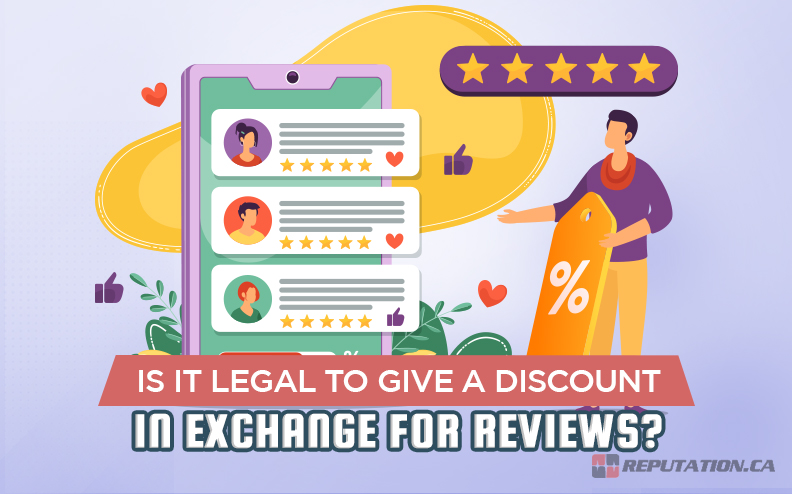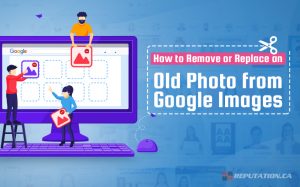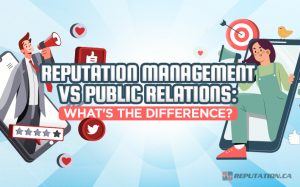A business is only as successful as the customers it retains and will crumble without a reliable consumer base. While dozens of products and services worldwide have become icons of their industry, this is not always enough to keep a business afloat. Companies that have earned a significant standing in society generate a particular reputation and expectation from their customers.
When the quality expected of the company falls below those expectations, it can cause serious damage to the reputation you worked so hard to cultivate. This is not only because your existing customers will start to lose faith in your product but because they will make their discontent known. Reviews have become a staple of online discourse between customers designed to spread information about the quality of products and services.
Reviews are a double-edged sword that can cause much trouble for companies whose products and services are below consumer standards. Bad reviews have become the bane of many companies, with some failing outright due to high levels of discontent among their consumers. This has become a more prevalent issue with the rise of online discourse enabling international communication between disgruntled customers.
That said, reviews are not inherently detrimental to a company and can generate more business when the consensus is positive. The trick is ensuring the good reviews outnumber the bad, which has caused some companies to try incentivizing their customers to leave reviews. The question is: is it legal to offer incentives for reviews?
Why Do Reviews Matter?
Many people are eager to dismiss reviews as inconsequential ramblings from disgruntled customers experiencing isolated issues. Unfortunately, reviews are an extremely important aspect of modern commerce since almost everyone uses them to gauge a company’s reliability and service quality.
Reviews were once difficult to access since most responses and opinions about a company were word-of-mouth. Since the rise of the internet, a potential customer can access thousands of reviews from anywhere on the planet with a wireless connection. This easy access has made reviews a dangerous weapon against companies that neglect quality control and reputable practices. Reviews have become so common that people use them as a baseline before making their first purchase.
As of 2021, the statistics show that 95% of customers read reviews before purchasing a product or reserving a service. This means almost all potential customers will want to assess the general satisfaction of your previous and existing customers before giving you a chance. Google Reviews and Yelp are 2 of the most common mediums people use to access reviews, and both use a rating system.
Once the reviews are posted, the reviewer can leave a star rating with a maximum rating of 5 stars. These star ratings illustrate individual satisfaction but also give Yelp and Google the necessary telemetry to generate an aggregate rating. The median also has a maximum of 5 stars but will use every existing review associated with your company to determine the overall score.

Once the aggregate score has been calculated, the star rating will be placed closest to the brand name, along with a menu showing what percentage of the total reviews are 1-star, 2-star, 3-star, 4-star, or 5-star reviews.
This aggregate score plays a huge role in a prospective customer’s decision-making process regarding retaining services or purchasing a product. Most statistics indicate hard cutoff points where customers will no longer trust the company if their star rating is too low. These statistics are as follows:
- 0% of consumers will trust a business with a minimum of 1 star.
- 1% of consumers will only trust a business with a minimum of 1.5 stars.
- 2% of consumers will only trust a business with a minimum of 2 stars.
- 3% of consumers will only trust a business with a minimum of 2.5 stars.
- 16% of consumers will only trust a business with a minimum of 3 stars.
- 23% of consumers will only trust a business with a minimum of 3.5 stars.
- 40% of consumers will only trust a business with a minimum of 4 stars.
- 10% of consumers will only trust a business with a minimum of 4.5 stars.
- 5% of consumers will only trust a business with a minimum of 4.6 stars or higher.
The average cutoff point for consumers is 4 stars, with most people wanting the business or product to have 4 stars as the minimum. This stance is understandable since spending large quantities of money on a lackluster service or product can be infuriating. The good news is that you do not have to maintain a perfect score to retain most of your customers, but that is no reason to slack on maintaining a positive climate among your reviews.
Therefore, a company maintaining a high aggregate rating is essential to preserving your consumer base and protecting their faith in you and your product. Maintaining a high rating has additional benefits that extend beyond your existing consumers. High reviews can attract new customers, further incentivizing the goal of maintaining high reviews. The challenge usually lies in cultivating more positive reviews than negative ones.
Positive vs. Negative Reviews
Given the significance of reviews in consumers’ lives, you might assume that negative and positive reviews are equally common. Unfortunately, this misconception has made it difficult for some companies to maintain a favorable rating. The biggest mistake is assuming you will receive a positive review whenever you have a satisfied customer.
Negative reviews are more common than positive ones because people are more interested in expressing their negative emotions. This is not to say positive reviews are not common or that satisfied customers will not leave a positive review to reflect their pleasure with their product or service. The issue is that people are more likely to express anger and frustration with a company than to express satisfaction and adulation. Usually, a lack of a review from a customer means they are satisfied with their product, but this can cause problems if you get negative reviews.
Statistically, customers who had a negative experience are 2 to 3 times more likely to leave a negative review than a satisfied customer leaving a positive one. This is not because there is an innate desire from satisfied customers not to praise the service but because they often do not feel the need to. Conversely, unsatisfied customers feel a greater desire to express their discontent because they want their issues to be addressed by the company.
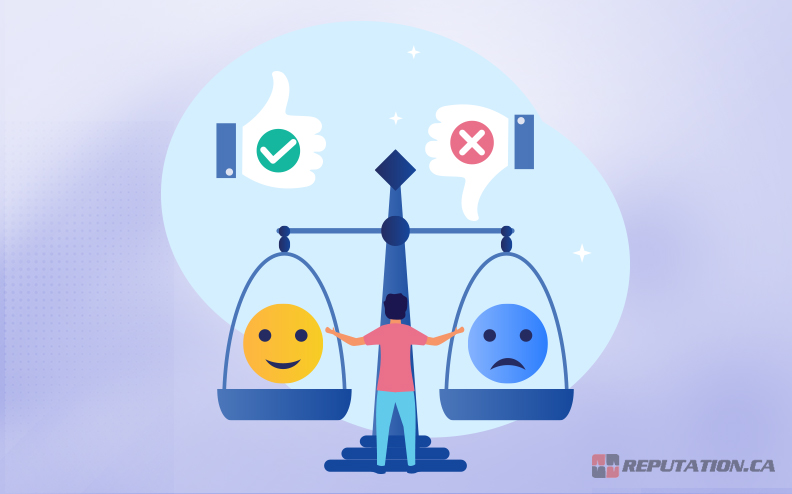
Usually, a negative review comes after a failed attempt to seek a resolution with customer service. Sometimes, customers will forgo contacting customer service, though this usually only happens when they have had multiple issues with the company’s products and services. When multiple customers have bad experiences and leave negative reviews, your aggregate rating can drop.
The big problem is that the lack of positive reviews from satisfied customers can cause negative reviews to have a greater impact on your rating. If you have had hundreds of satisfied customers, but only the unsatisfied customers are leaving reviews, your rating will plummet well below the 4-star preference. This has made encouraging review posting an important component of maintaining your reputation.
Without a balance between reviews from upset and satisfied customers, it will be almost impossible to maintain a high rating and draw in new business. Unfortunately, the challenge is finding a way to convince your satisfied customers to leave positive reviews. Some companies have offered discount codes to return customers in exchange for leaving a review. Unfortunately, there is some concern about the legality of this practice.
Is It Legal to Offer Discounts for Reviews?
Considering how important positive reviews are, it seems natural to want to incentivize leaving them to your customers. One thing that always speaks volumes to consumers is saving money and time, which can be difficult in the current economy. As a result, many people are eager to acquire discounts whenever possible, especially for products and services they use regularly.
It would seem like the best way to get favorable reviews is to offer discount codes and promotions to encourage your consumers to leave them. However, there are a few concerns among some companies and organizations about whether offering discounts for reviews is legal or borders on fraud. The answer to that question is slightly complicated and depends on the situation with which you are dealing. Typically, there should be zero legal conflict with offering discounts to customers in exchange for leaving a review.
The caveat is that you can only encourage them to leave an honest review and cannot attempt to nudge them toward leaving a favorable one. Let us say that, to improve your rating, you offer a 25% discount code on the customer’s next purchase if they leave a verified review for the product they just purchased. This would be completely legal since you are rewarding them for taking time out of their day to leave a review.
That said, you must accept the nature of the review they leave and honor the deal, even if it is negative. If they leave a negative review and you renege on the agreement by not providing the promised discount code, you are vulnerable to further reputational damage and possible legal repercussions. So, regardless of whether the review is negative, you must adhere to your agreement with your customers.
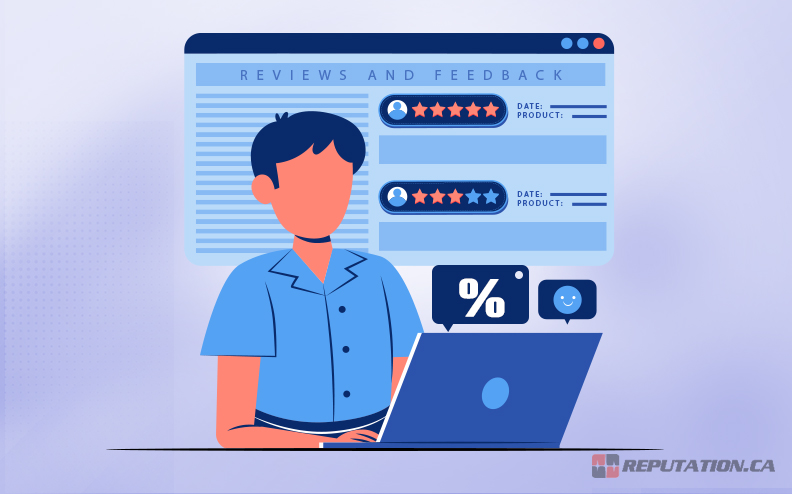
While this concerns some companies, going back on a deal to provide a discount code over a negative review is a civil matter. The biggest issue is attempting to use a discount code as a bribe for favorable reviews to try and skew the ratings in your favor. Let us say you offer the same 25% discount code to customers who leave a review but specify that the review must be positive. In this case, you are attempting to bribe your customers for a positive review for personal benefit.
Technically, this is not illegal per the United States or Canadian governments (though certain cases can result in legal punishments), but it does violate the terms of service for review sites like Yelp. Additionally, if it ever gets out that you are bribing customers to leave positive reviews for lackluster products and services, your reputation will take a bigger hit.
If the general public learns that you are using underhanded techniques to make your product or service look better than it is, your prospective and existing customers will lose trust in you. This will cause you to lose large amounts of business and radically affect your overall profit and success. Most people are adamantly opposed to using the services of a company that uses dishonest means to advertise its product.
Therefore, while there are no legal repercussions, your best choice is to offer discounts for genuine reviews and use the recommendations to improve your product and service to meet consumer expectations. You can also employ certain reputation management tools to improve your public image while you take advantage of the reviews. This can help reassure prospective and existing customers that their concerns are being taken seriously.
Take Your Reputation Back!
Dealing with reviews, good or bad, can be a major concern for corporations worldwide, especially since they are hosted on countless platforms. Unfortunately, the ratio of good to bad reviews is skewed in favor of the negative and can be difficult to overcome.
Offering incentives for satisfied customers to leave a review is a common practice, but you should avoid crossing the line into bribery for positive reviews if you want to maintain your image. While this can help your company deal with reviews to a certain extent, there are other steps you can take to handle the negative ones. The problem is that doing so might require a little extra help.

We at Reputation have made preserving your public image our mission and offer several services dedicated to that goal. Among our services is review management, so we can help you deal with negative reviews and possibly increase the number of positive ones. While we cannot offer discounts without your assistance, we can help you improve relations with your customers and enhance the public perception of your company. There are no shortcuts to a better image, so visit our website today and take your reputation back!




